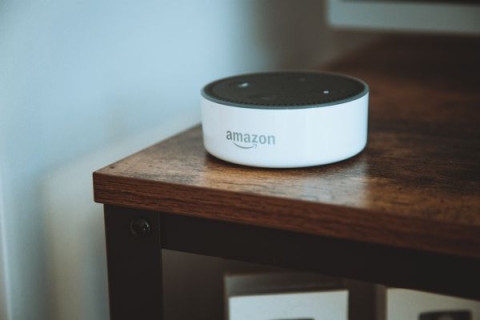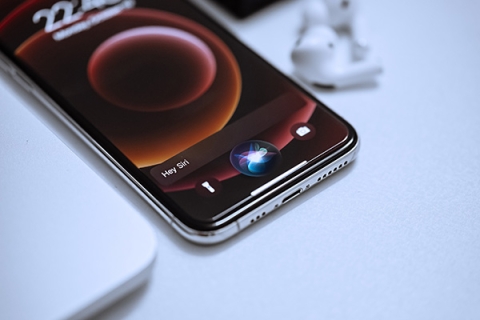

Millions of people are increasingly seeing their in-home voice-based assistant as human and even as a friend, according to new research
3 March 2021
3 min read
Millions of people are increasingly seeing their in-home voice-based assistant as human and even as a friend, according to new research.
But while the majority of users trust and form a relationship with their artificial intelligence device, mostly because they are useful and sound like a human, they don’t trust the companies behind the technology.
The research, led by Dr Valentina Pitardi at the University of Portsmouth, is published in Psychology of Marketing.
Dr Pitardi said: “The most significant finding was the yawning gap between trusting the device’s voice, which they see as partly or entirely human, and trusting the parent company behind it, primarily Google, Apple and Amazon.
The primary strength of such devices, for humans, is their voice. The voice alone has immense power to build trust.
Dr Valentina Pitardi , Senior Lecturer
“There are more than four billion voice-based devices in use worldwide and while people might be sceptical about advanced smart technology and reluctant to use it for shopping, they are embracing what they see as the ‘almost-human’ device in their homes, even sometimes talking of looking forward to coming home to them.”
The gap is leading to many using and trusting their devices for only very limited tasks, which throws up an interesting challenge for the companies pinning their hopes on increased use of such devices to buy products.
The results also highlight how humans’ relationships with artificial intelligence are transforming as such devices become commonplace.
Dr Pitardi said: “The primary strength of such devices, for humans, is their voice. The voice alone has immense power to build trust.
“People are interacting with these devices in the same way they interact with people, because the devices sound human.”

Siri is just one of many voice-based assistants which the research found the more people used it, the more useful it became, meaning the higher people ranked their enjoyment using it.
Dr Pitardi questioned about 500 men and women aged 18-55 who use voice-based assistants including Alexa, Siri and Home which all use artificial intelligence to become faster and more accurate in responding to people’s needs and questions.
The more people used their device and the more useful it became, the higher people ranked their enjoyment using it.
While the vast majority said they found their devices useful and easy to use, the devices’ perceived ‘social presence’ was rated highest.
Most used their device to find out the news or weather, play music, look up something on the internet, switch on lights or set reminders.
Dr Pitardi said the greater the illusion the device was human – such as its voice, intonation and ability to respond and understand – the greater the enjoyment and trust of those using them.
“Because the majority of uses are everyday and relatively easy, trust is built and enjoyment rises.”
People questioned said things like “Google knows me better than my wife”, and “I am talking with Alexa, and Amazon is listening”, highlighting a gap between the device and the parent company behind it.
Google knows me better than my wife.
Participant in the study, Author
Some knew their use of such a device led to more targeted advertising on internet browsing and this was seen as a good thing, with one person saying: “I really don’t give a toss about someone listening… I would rather be bombarded with ads that were of interest to me.”
Many described their device in human terms, such as “she is becoming more clever day by day”, and “when I come home from work I say hi to her (Alexa) and she always responds. I know she’s a machine, but it’s nice to have someone waiting for you at home.”
Dr Pitardi said there had been a growing call for studies on human-AI interaction, and she hoped her study differentiating between trust and privacy would help contribute to understanding a rapidly growing field.
Previously, it was found that 41% of those with a voice-based device had some concerns about their privacy and thought the device was always listening to them. But the more they interacted with it, using it to find out information, the faster the barriers to trust fell.
